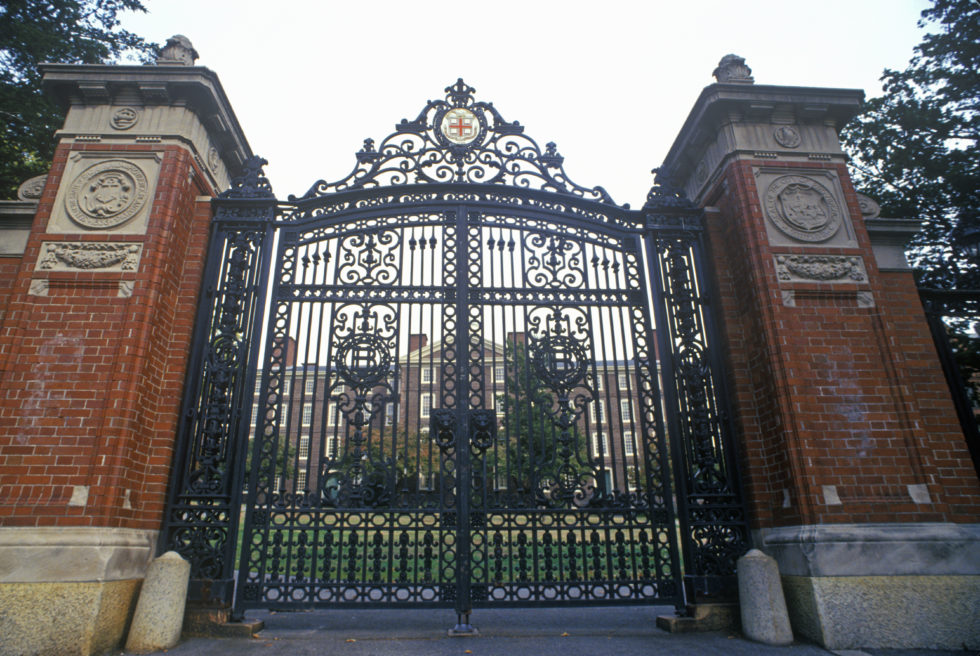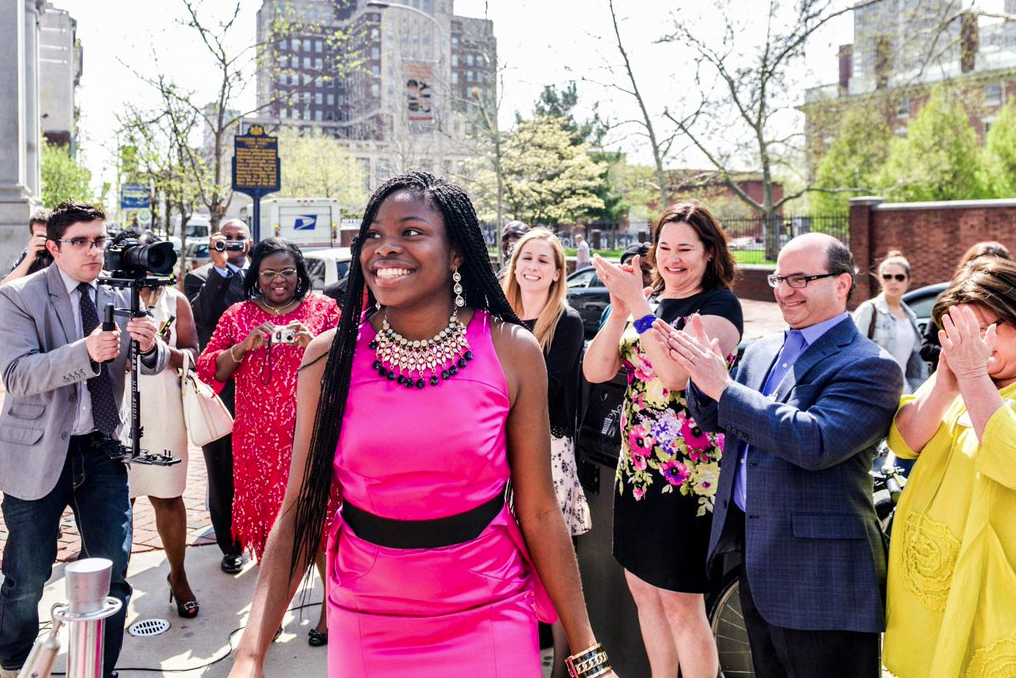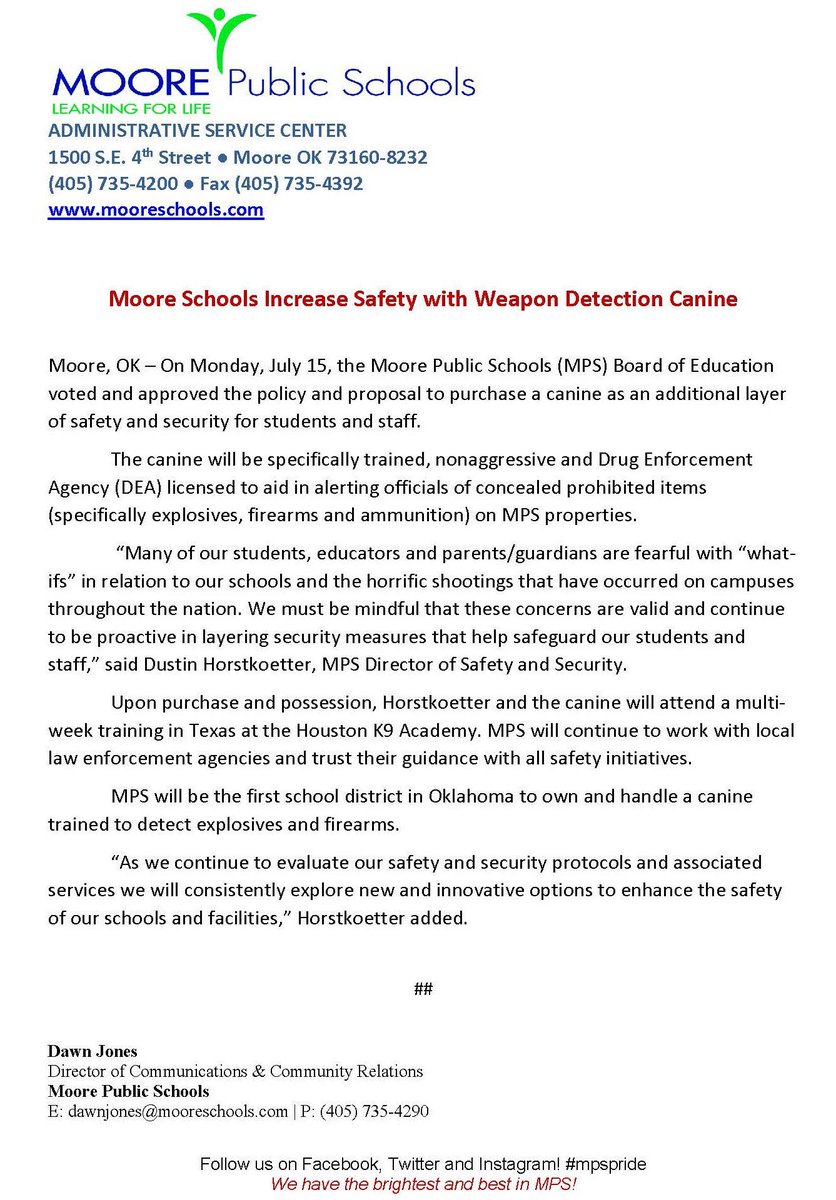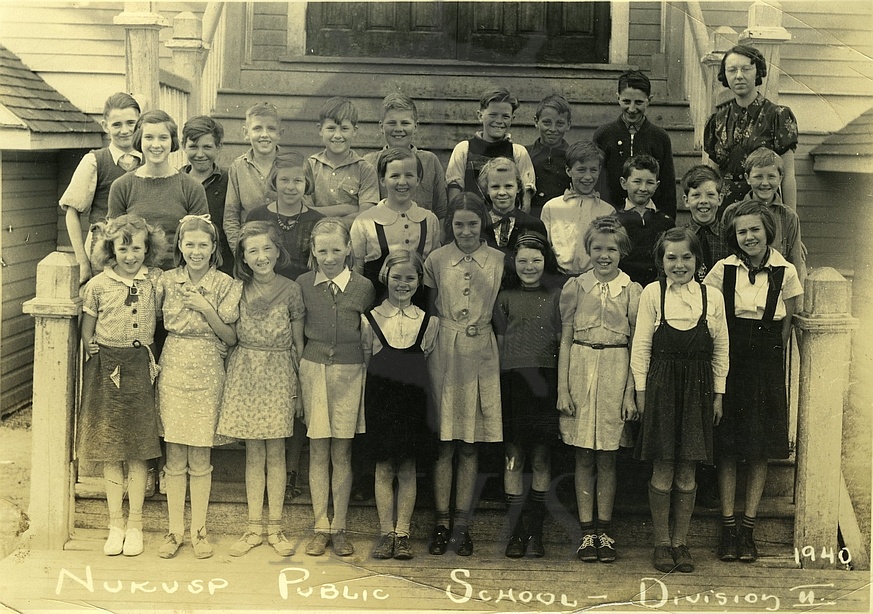Ivy League schools are private colleges and universities that offer students high-quality academic programs. Understanding Ivy League and similarly ranked schools can help you determine which is the right choice for you when seeking an undergraduate or graduate degree. Choosing the right type of learning environment for your needs can also help you develop a professional network while in school, supporting your future career advancement. In this article, we explain what an Ivy League school is, discuss their history, outline the benefits of attending one and provide answers to frequently asked questions about Ivy League schools.
Many years ago, an author wrote a book about public ivies, or public universities in USA that offer quality educations. It's a reference to the Ivy League, which is a very selective sports conference that only has seven schools. Some of the supporters of schools that are considered public ivies, such as Miami University like to constantly state this as a way of bragging. Most of the schools on this list and their students simply don't care. The type of classes you choose to take in high school does matter. A 3.9 GPA might not get you into an ivy league school if you take the easiest classes your high school has to offer.
A "B+" in AP Chemistry or a college extension class is going to be much more impressive than an "A" in remedial math or home economics. But I have also visited private liberal arts colleges that prepare their students exceptionally well for work or further education. They offer a more personal experience and leave families in less debt than much larger public schools. This is especially true in Pennsylvania, the state that has more liberal arts colleges than any other. It has been common to hear that a mid-pack admitted student at Penn State or Pitt can qualify for enough scholarship aid to make an in-state private college experience less expensive than the large public universities. An Ivy League school is a prestigious college or university in the United States.
This league includes eight schools in the northeastern part of the country. Seven of the Ivy League schools are colonial colleges or post-secondary schools founded prior to the American Revolution. Founders created the remaining college in this league after the American Civil War. Ivy League schools typically offer students extensive educational resources and high-quality courses. They often have low acceptance rates, meaning the admissions process may be competitive. Located in Bloomington, Indiana, Indiana University is the flagship institution of the Indiana University System and, with more than 40,000 students, its largest university.
The major provides a strong grounding in writing and research as well as personal mentoring through research opportunities in faculty laboratories. Undergraduates blend a liberal arts foundation with field-based experiences and knowledge. The department of psychology also offers seven graduate majors that allow students to develop a course of study and a depth of knowledge in the area most in line with their interests. These areas of study include disciplines such as cognitive neuroscience, developmental psychology, and clinical science. "Public Ivy" is a term that refers to prestigious public colleges and universities in the United States that provide a collegiate experience similar to those in the Ivy League. The list of "public ivy" institutions has gone through several revisions over the years, much like other university rankings and conferences.
The term actually originates from a 2000 book by the same name. Howard and Matthew Greene co-authored the book in which 63 colleges were identified for their similarities to the Ivy League. Some of the overarching characteristics included a low acceptance rate, academic rigor, liberal arts education, and smaller size.
The book is still being sold and is actually in its 3rd edition. It was written to help students who don't get into the Ivies to find suitable schools that still meet their academic goals. Founded in 1885 and located in Tucson, Arizona, the University of Arizona was the first university in the Arizona Territory. Now, UA enrolls nearly 45,000 undergraduate and graduate students across its 19 separate colleges and schools.
The UA College of Science offers training in psychology at both the undergraduate and graduate levels. Degree depending on their professional goals, and although a terminal master's degree is not available, there are three graduate programs that lead to a doctoral degree. Throughout all programs, there is a strong focus on research and teaching as students have the opportunity to participate in ongoing laboratory research projects. CollegeAtlas.org provides higher-education, college and university, degree, program, career, salary, and other helpful information to students, faculty, institutions, and other internet audiences. Inclusion on this website does not imply or represent a direct relationship with the company, school, or brand. Information, though believed correct at time of publication, may not be correct, and no warranty is provided.
Contact the schools to verify any information before relying on it. The displayed options may include sponsored or recommended results, not necessarily based on your preferences. Excuses don't hold weight in the real world and a public ivy league college isn't about to admit a student they feel is unprepared for the academic rigors that a public ivy school presents. Public Ivy League Schools are known to look for students who have demonstrated over several years that they are prepared for the demands of college. Public Ivies are top-notch schools that offer high-quality education and unparalleled learning resources at a lower price tag.
In-state students can significantly benefit from tuition discounts that cut Ivy League in half or more. Education at Public Ivies is usually rooted in the liberal arts and sciences with research experience. Public Ivies attract some of the brightest students and accomplished faculty members. The Public Ivies have larger campuses with more diverse students, bigger course catalogs, and more campus clubs. Unlike the Ivy League, athletes at Public Ivies can also receive intercollegiate NCAA Division I scholarships for financial aid.
These highly prestigious private universities are known for their top-notch academic programs, as well as their hefty tuition rates. Many students dream of attending one of these schools, but the low acceptance rates make it tough to obtain an Ivy League education. Public Ivy League schools are public universities that offer students a comparable academic experience to an Ivy League school. These public schools may offer notable faculty members, accept skilled students and uphold a standard of academic rigor.
Since these schools are public universities, they may be more affordable than traditional Ivy League schools. They're typically larger than Ivy League schools, which means the undergraduate student body may also be larger. Each Ivy League college has its own unique accomplishments that make it important.
All carry a certain reputation with them, and each school has programs that excel primarily in the medical and law fields, making them some of the most sought-after schools in the world. Their admissions process is very selective, which helps the schools ensure that they only accept the best and brightest. Many famous people have graduated from Ivy League schools, including recent presidents George W. Bush, Bill Clinton, and Barack Obama. This prestige leads many to believe that these colleges are only for the wealthy and elite. Often, companies look for Ivy League graduates as potential employees, usually preferred by law firms, medical facilities, and large corporations.
Which Schools Are Considered Public Ivy League It has long been coveted to have earned a degree from an Ivy League school. Today, there are other competitors that some claim to be just as good as their Ivy counterparts. Some of these well-known schools include Duke University, Johns Hopkins, MIT, Vanderbilt, and Georgetown University, to name a few.
The Ivy League schools are still excellent in both academia and in sports, and they have left a legacy of higher education with an exceptional track record and reputation to go along with them. Currently, there are 31 universities and college that are considered to offer an education at the same levels as the Ivy League institutions. This listing was developed and published by Howard and Matthew Greene. The names of the public Ivies ordered based on their rankings by the University Review, together with their location, tuition costs, and size of the student body are given in the table below. Clicking on the name of any of the colleges in the table will take you to a more detailed page providing information on the history of the institution, relevant facts and figures, location maps, and admission processes. The Ohio State University is a public research university in Columbus, Ohio that was originally founded as a land-grant school in 1870.
The department of psychology is known for its rich history of excellence in service, teaching, and research, and it is home to 1,800 undergraduate majors, 150 graduate students, and 50 faculty members. Students can choose from a broad spectrum of course offerings and research opportunities in seven areas of study, and undergraduates may pursue either a B.A. Miami University, founded in 1809, is a public research university in Oxford, Ohio. Throughout the undergraduate curriculum, students learn to write effective and engaging text, apply basic research findings, construct convincing evidence-based arguments, and summarize and synthesize existing literature.
Students develop their knowledge, skills, and experiences, and there are a number of opportunities to become involved with community service, teaching, and research. Graduate students may choose from a Ph.D. in areas such as social psychology, clinical psychology, and brain, cognitive, and developmental science. The goal of this list is to highlight the 30 best Public Ivies that offer an undergraduate or graduate degree in psychology. In order to find these universities and colleges, we conducted a search for the phrase "psychology degrees" using the College Navigator database at the National Center for Education Statistics.
Our search results include a list of 40 schools, which we then narrowed down into the top 30 programs based on the following ranking factors. In short, many of the Public Ivies are recognized as top US universities that provide Ivy-level education at public school prices. It's likely no surprise that Ivy League-level colleges and universities would borrow a little "ivy" to use in their own names. These similarly prestigious groups of institutions include public schools, small liberal arts colleges, and other lesser-known, top-tier schools. Small Ivy League schools are prestigious liberal arts colleges.
They're often smaller than traditional Ivy League schools and located in the northeastern region of the U.S. These schools are a type of Ivy League school since they have selective admission standards and offer students a high-quality academic experience. Despite their size, small Ivy League schools may receive large financial endowments. The classification "Ivy League" originated in 1937 when sportswriter Caswell Adams referred to a football team's school as an ivy-covered university. At that time, many private colleges had ivy growing on their walls and participated in customary ceremonies where they planted ivy on their campuses. The term became more prominent in 1954 during the creation of the NCAA athletic conference for Division I teams.
The eight private schools formed a league based on their common interests in athletics and academics. Then they signed an agreement on academic standards and football schedules. Today, Ivy League schools have a reputation for academic excellence. Founded in 1817 in Detroit, the University of Michigan is now located in Ann Arbor, Michigan and is considered to be one of the foremost research universities in the country. The school's psychology department gives students the choice of either a B.A. Degree, and they may further focus the program in either psychology or biopsychology, cognition, and neuroscience.
The goal of the psychology department is to provide students with a background in the various levels of methodological approaches and analysis techniques used in the study of human behavior. Undergraduates tailor course selections to meet their educational and professional goals, experience a wide variety of community settings, and gain research training. Graduate programs are also available at the master's and doctoral levels. As we mentioned previously, if you don't do well in high school but have the smarts, all is not lost. By attending a junior or community college after high school there is a slight chance that you may still be able to prove to a Public Ivy League school admission's board that you have what it takes.
If you opt for this route, be prepared to work very hard as junior colleges and community colleges are often more demanding than high school. As a rule, it is much more preferable to do well in high school and move directly into the four-year public ivy league school of your choice. The institution was founded in 1746, making it the fourth oldest university in the United States. It is a medium-sized institution with around 5,000 undergraduate enrollments, and like Harvard, has an extremely competitive acceptance rate of only 5%. Some of its most popular degrees include computer engineering, public policy analysis, and economics.
It is rated #2 of the best colleges in America to study political science and public policy analysis. SAT grades range from 1440 to 1570 and ACT grades range between 32 and 35. Several universities considered as "Public Ivies" are consistently ranked among the top schools in the multitude of surveys on American colleges and universities undertaken by U.S. For instance, half of the top 12 ranked national universities for undergraduate teaching in U.S. News & World Report are of the original Public Ivies listed by Moll.Public Ivies can be found in the top ten ranked graduate schools in business, education, engineering, law, library & information science, and medicine. Another reason why some students choose a Public Ivy over an Ivy League university has to do with their admissions prospects.
While many Public Ivies are selective, many are less selective than schools, like Harvard or Princeton, which have acceptance rates of 5 percent and 6 percent, respectively. In other words, even though Public Ivies may be competitive, many are less difficult to get into than their private counterparts. Public institutions should cost significantly less than private universities for every student, regardless of a family's ability to pay or whether they hail from in-state or elsewhere. The estimated total cost of attendance should be less than the least expensive Ivy charges for tuition and fees alone. It should cost less for a student to succeed academically, financially and socially at a Public Ivy than it ever could at a private Ivy or an Ivy-like/near-Ivy school.
That requires me to consider what a school expects students to spend beyond the charges on the term bill. Several schools considered as "Public Ivies" are consistently ranked among the top schools in the multitude of surveys on American colleges and universities undertaken by U.S. News and World Report are of the original Public Ivies listed by Moll. Public Ivies can be found in the top ten ranked graduate schools in business, education, engineering, law, and medicine. Also known as UCSD, the University of California San Diego was established in 1960, making it the seventh-oldest of the 10-school University of California System. It offers more than 200 programs to nearly 40,000 undergraduate and graduate students.
In Psychology, both of which prepare students for graduate studies or fields such as teaching, social work, human relations, and advertising. Department members have research interests across a range of topics, from cognitive and behavioral neuroscience to sensation and perception to social, developmental, and cognitive psychology. UCSD also offers a Ph.D. in Experimental Psychology for interested graduate students. Also referred to as UC Davis, the University of California Davis was founded as a branch of the University of California System and became its own separate entity in 1959. Both programs provide a broad introduction to the scope of contemporary psychology, and graduates are prepared to enter fields such as human resources, government, and business or pursue higher levels of education.
Doctoral training is also available in areas such as quantitative psychology, developmental psychology, social and personality psychology, biological psychology, and perception cognitive neuroscience psychology. Founded in 1856, the University of Maryland is a public research university in College Park, Maryland. In Psychology at the undergraduate level as well as several graduate programs in psychology.
Undergraduates are prepared with the professional, collegiate, and real-world skills they need to be successful in the field, and both programs prepare students for employment after graduation as well as graduate studies. Specialty areas within the Ph.D. programs include developmental psychology, counseling psychology, and clinical, cognitive, and neural systems as well as social, decision, and organizational science. Harvard University is probably the most well-known Ivy League school.
It is located in Cambridge, Massachusetts, and is a medium-sized school with around 7,000 undergrad enrollments. Harvard is also a very competitive school as the acceptance rate is only 5%. Accepted students' SAT grades typically range from 1460 to 1580, and their ACT grades range between 33 and 35. Harvard is rated #1 for biology studies and political science studies according to Niche's 2020 Best Colleges. University of the People is a member ofHarvard Business School Online's (HBS Online's) Collaborating Colleges program. Harvard Business School Online offers a unique and highly engaging way to learn vital business concepts via an innovative online platform that brings the Harvard Business School classroom to you.
Despite having lower tuition than Ivy League colleges, public Ivies tend to give less financial help. Ivy League schools may give larger financial assistance packages because they have huge endowments and are not reliant on ever-changing governmental financing. In-state students are often eligible for need-based financial aid at public universities. If you're living in the same state as a Public Ivy—or can establish residency near your school of choice before college—it's probably themost affordable wayto get an outstanding education.

























